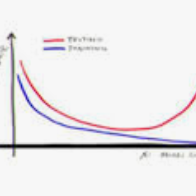Domain generalization (DG), aiming to make models work on unseen domains, is a surefire way toward general artificial intelligence. Limited by the scale and diversity of current DG datasets, it is difficult for existing methods to scale to diverse domains in open-world scenarios (e.g., science fiction and pixelate style). Therefore, the source-free domain generalization (SFDG) task is necessary and challenging. To address this issue, we propose an approach based on large-scale vision-language pretraining models (e.g., CLIP), which exploits the extensive domain information embedded in it. The proposed scheme generates diverse prompts from a domain bank that contains many more diverse domains than existing DG datasets. Furthermore, our method yields domain-unified representations from these prompts, thus being able to cope with samples from open-world domains. Extensive experiments on mainstream DG datasets, namely PACS, VLCS, OfficeHome, and DomainNet, show that the proposed method achieves competitive performance compared to state-of-the-art (SOTA) DG methods that require source domain data for training. Besides, we collect a small datasets consists of two domains to evaluate the open-world domain generalization ability of the proposed method. The source code and the dataset will be made publicly available at https://github.com/muse1998/Source-Free-Domain-Generalization
翻译:为使模型在隐蔽域上发挥作用,广域通用(DG)是通向一般人工智能的可靠途径。受当前DG数据集的规模和多样性的限制,现有方法很难在开放世界情景中向不同领域推广(例如科幻小说和像素板风格),因此,无源域通用(SFDG)任务既必要又具有挑战性。为解决这一问题,我们提议了一种基于大规模愿景语言预培训模式(例如CLIP)的方法,利用了其中所含的广泛域信息。拟议办法从一个域库产生多种提示,其中含有比现有DG数据集更多的不同领域。此外,我们的方法产生来自这些亮点的不同域的域统一表达方式,从而能够应对来自开放世界域的样本。关于主流DG数据集(即PACS、VLCS、OfficeHome和DomainNet)的广泛实验表明,拟议方法取得了与State of the State-art(SOTA)DG-DG-DG方法相比具有竞争性的性性表现。除了我们提议的数据源域/Sreabs a preal dreal dreal dreal sal set supreasetal supal supal bes lats,我们提议的数据将采用可公开数据系统。




